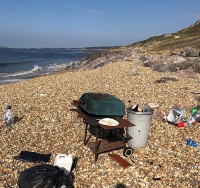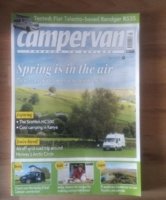One of the mags did an article on the legalities of wild camping, can remember reading it but cant remember which mag!
Either the CCC monthly or maybe Campervan. I'll see if I can find it. It was very informative and well written with help from
the publishers legal team. They did emphasise that to the letter of the law, its permitted in a tent, not a campervan, but
there were some Scotland/elsewhere differences that I forget.
Cheers
Phil
The thing with "experts" is that they offer their interpretation. I can't offer any legal advice only facts. A court case sets the rules for the real interpretation. To date (AFAIK) there is no legislation in England/Wales (I don't know about Scotland) that prevents wild camping. Wild camping is a bit of a misnomer and used for a catch all but easier to write than "overnight sleeping in vehicles". If anyone is able to link to actual law preventing wild camping I would be very glad to read up on it. BTW again AFAIK there is no law allowing camping in tents, but some of the national parks have acceptable use rules/policies and tents are included with some specific conditions attached, whilst vehicles are not. Rules or policies are not law.
In English law, anything that is not forbidden by legislation or common law is allowed. Throughout my time with the old bill, I did not know of one prosecution for wild camping (travellers law is different and can't be used for wild camping). If I've missed something in the last few years I would be very grateful if someone could evidence this legislation.
Having said all that, we seem to be veering off course; I simply asked whether the forum could share a few spots for other members. Whether or not I choose to use said places is down to me surely?
Last edited:


 and give my revenue to the local area.
and give my revenue to the local area.


